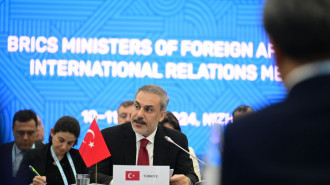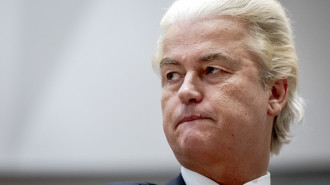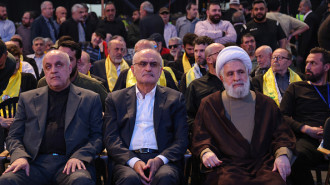EU seeks closer energy ties with Algeria: Borrell
The European Union's foreign policy chief Josep Borrell called Monday during a visit to Algeria for stronger energy cooperation with Africa's top gas exporter as well as enhanced security ties.
About "90 percent of Algerian gas exports go to Europe, and we know we can count on Algeria, which is a reliable partner and has been through difficult times," Borrell said after a meeting with Algerian President Abdelmadjid Tebboune.
The 27-country bloc would like to develop the partnership with Algeria "looking at the future, by prioritising European investments in the renewable energy sector", Borrell added in a statement.
European governments, scrambling to find alternatives to Russian gas since last year's invasion of Ukraine that has sent prices soaring, have turned to Algeria instead, with Italy leading the pack.
Borrell called on Algeria to "join efforts... to stop this unjustifiable war", noting its "economic and human impact on the entire world".
Algeria has maintained warm ties with both its European neighbours and Moscow, despite Russia's invasion of Ukraine.
President Tebboune, who is set to visit Russia in May, decided in February to reopen the Algerian embassy in Kyiv, which had been closed since the invasion began last year.
Borrell also said the EU and Algeria had agreed to "relaunch high-level security dialogue", with the first meetings planned before the end of the year.
"This proves that Algeria is a trusted partner and a key player in the fight against terrorism in our shared neighbourhood."
Borrell hailed Algeria's "great history of fighting against terrorism" and called for a "global and strategic vision" to counter threats, particularly in the Sahel region.
The top diplomat said the EU and Algeria could "do better" on trade relations, calling for a solution "to obstacles (Algeria) introduced since June 2022 to commerce with Spain".
The North African country had suspended a cooperation pact with Spain after Madrid reversed its decades-long stance of neutrality on the Western Sahara, agreeing to back regional rival Morocco's autonomy plan for the disputed region.







 Follow the Middle East's top stories in English at The New Arab on Google News
Follow the Middle East's top stories in English at The New Arab on Google News


